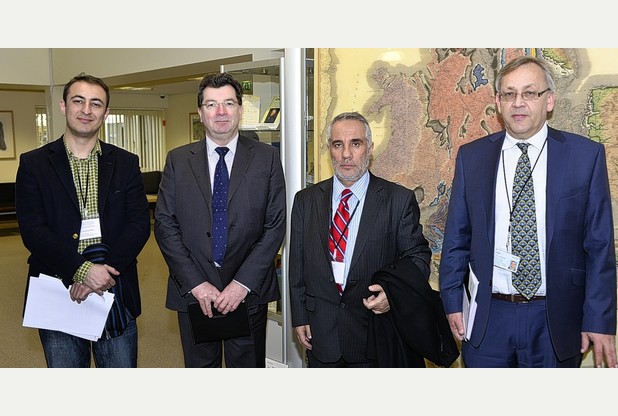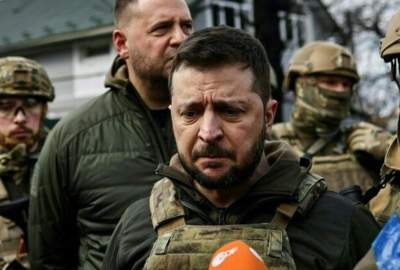GEOLOGICAL experts from Notts have been commissioned by the Afghan government to help develop a mining industry.
The war-torn country is thought to be rich in rare minerals which could be valuable to the world's electronics industries.
But it lacks the expertise to extract the minerals and has turned to the trading division of the British Geological Survey to help it take the first steps.
Afghanistan's Minister of Mines and Petroleum, Mohammad Barekzai, visited BGS's Keyworth HQ to approve a three-year contract with BGSi, the survey's international trading division.
The Minister said: "I'm very happy with the meeting. It was very informative for me and I was given some great information about Afghanistan and the geology of the world."
Afghanistan sits on rock strata which are believed to contain gold, copper, iron and rare earth elements, along with strategic metals such as niobium, lithium and beryllium.
Besides the normal commercial use of gold and copper, the strategic metals are used in computers and mobile phones – a huge growth market.
Professor John Ludden, executive director of BGS, says the three-year contract with Afghanistan will see a BGSi team help to establish a construction materials testing laboratory, an environmental geology section, and a minerals promotion unit at the Afghan Geological Survey in Kabul.
"There is potential to establish world-class mining in Afghanistan, but that is a process which could take 10-15 years," he said.
"We will help to create a minerals development bureau by pursuing three priorities – environmental best practice, building materials accreditation and the development of a minerals brochure."
The geology of Afghanistan has never been properly explored using modern tectonic methods, but it is believed to have significant metals and mineral wealth from rock strata which also sit beneath surrounding countries. Professor Ludden says mining has the potential to become a significant part of the Afghan economy if it is exploited properly. But its scale can only be established by putting in the surveying infrastructure, which will enable studies of the geology, sampling, followed by exploration and mining.
If successful, the work would see a number of other support industries established alongside the mining itself.
BGS, a Government-funded agency, employs around 450 people at Keyworth, but only a small team works in BGSi, which can be expanded. through taking on specialist contractors. Prof Ludden says some staff from Keyworth will go out to Afghanistan, but they will be based in the capital, Kabul, and working in secured conditions.
(Nottingham Post)
The war-torn country is thought to be rich in rare minerals which could be valuable to the world's electronics industries.
But it lacks the expertise to extract the minerals and has turned to the trading division of the British Geological Survey to help it take the first steps.
Afghanistan's Minister of Mines and Petroleum, Mohammad Barekzai, visited BGS's Keyworth HQ to approve a three-year contract with BGSi, the survey's international trading division.
The Minister said: "I'm very happy with the meeting. It was very informative for me and I was given some great information about Afghanistan and the geology of the world."
Afghanistan sits on rock strata which are believed to contain gold, copper, iron and rare earth elements, along with strategic metals such as niobium, lithium and beryllium.
Besides the normal commercial use of gold and copper, the strategic metals are used in computers and mobile phones – a huge growth market.
Professor John Ludden, executive director of BGS, says the three-year contract with Afghanistan will see a BGSi team help to establish a construction materials testing laboratory, an environmental geology section, and a minerals promotion unit at the Afghan Geological Survey in Kabul.
"There is potential to establish world-class mining in Afghanistan, but that is a process which could take 10-15 years," he said.
"We will help to create a minerals development bureau by pursuing three priorities – environmental best practice, building materials accreditation and the development of a minerals brochure."
The geology of Afghanistan has never been properly explored using modern tectonic methods, but it is believed to have significant metals and mineral wealth from rock strata which also sit beneath surrounding countries. Professor Ludden says mining has the potential to become a significant part of the Afghan economy if it is exploited properly. But its scale can only be established by putting in the surveying infrastructure, which will enable studies of the geology, sampling, followed by exploration and mining.
If successful, the work would see a number of other support industries established alongside the mining itself.
BGS, a Government-funded agency, employs around 450 people at Keyworth, but only a small team works in BGSi, which can be expanded. through taking on specialist contractors. Prof Ludden says some staff from Keyworth will go out to Afghanistan, but they will be based in the capital, Kabul, and working in secured conditions.
(Nottingham Post)
Source : Afghan Voice Agency (AVA), Kabul







